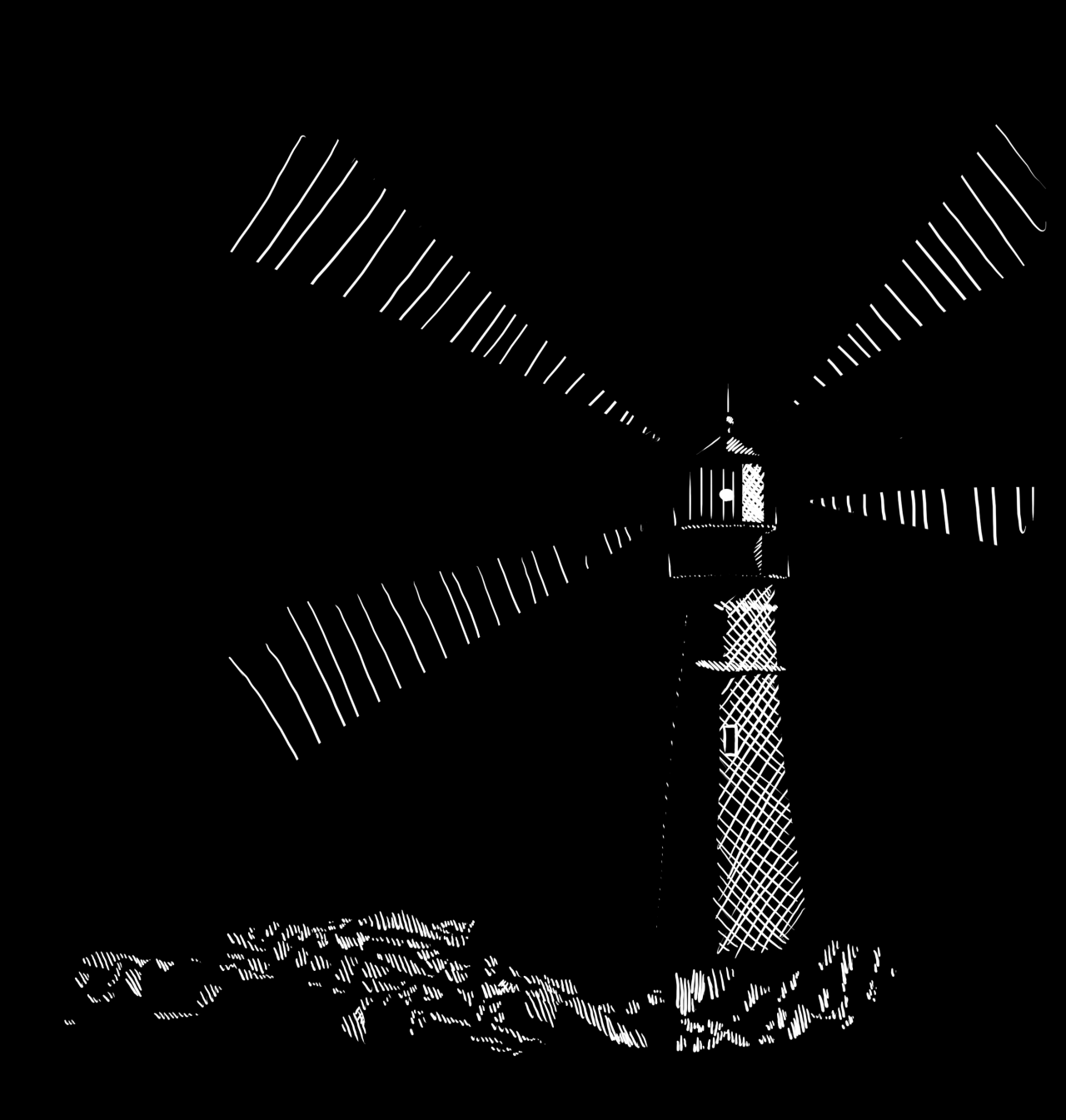illustration by Andrea Nebhut
Fall is an interesting time for movies. The summer blockbusters have passed, and the big end of the year films, like Star Wars, have yet to release. This leaves the months of October and November available for the more creative elements of filmmaking, often releasing movies that are more original and explorative in their premises. It is in these months that we tend to get the more Oscar-chasing releases looking to make their mark come February.
“The Lighthouse” is one such example of creative filmmaking, yet it remains a hidden gem among the conglomeration of fall releases.
Robert Eggers’ visionary horror flick maintains a simple premise: Two lighthouse keepers, Thomas Wake (Willem Dafoe) and Ephraim Winslow (Robert Pattinson), struggle to uphold their sanity when stranded on a lighthouse island in the 1890s. Although simplistic in nature, requiring only two actors and less than five major set-pieces, Egger crafts a tale that contains more mystery, thrill and personality than most contemporary blockbuster releases.
“The Lighthouse,” while seeming to identify with the independent, exploratory realm of filmmaking, solidifies itself as a member of the horror genre. Shot entirely in black and white, with Hitchcock-era visuals and filming techniques, Eggers showcases to the younger generations of moviegoers what sitting down at the premiere of films like “Psycho” would be like.
And the film certainly does not shy away from characteristics of a typical horror movie, maintaining its fair share of jump scares and ominous moments, but the resulting jumping in your seat is not necessarily because Dafoe suddenly ran out with an ax screaming at the camera. Rather, the scares come from the fact that we become just as confused and frightened by the psychological horror that is unfolding within the characters.
This focus on psychological horror creates an ominous tone that becomes prevalent within the first 15 minutes. As Winslow is inexplicably drawn to the lamp of the lighthouse that the elderly Wake seems to be hiding from him, we encounter several dream sequences taking place in the mind of Winslow. These dreams lead him to believe that Wake is dabbling into the occult via the lamp. Yet, Eggers draws no definite line between what is fact or fiction in this scenario, underscoring our own inability to discern whether Winslow is going mad or if there is something more paranormal at work. We, too, want Winslow to reach that lighthouse lamp, not for his supposed clarity, but for our own.
Yet even in the climactic moment of the movie, Eggers offers no logical reason to the happenings. He leaves us with a shot that those somewhat fluent in Greek mythology will find very familiar but is pivotal to the experience of any audience member. It’s an ambiguity reminiscent of the Stanley Kubrick era, following several parallels to the ending of “2001: A Space Odyssey.” Although set in a completely different situation, “The Lighthouse” makes several nods to the techniques of Kubrick through brilliant foreplay between music and imagery.
While Eggers is certainly the puppeteer of this masterpiece, the brilliance of his work comes to life in a very unlikely but rewarding pairing of Dafoe and Pattinson. The dedication and grit of Dafoe is fulfilling to watch but slightly expected from an actor of his caliber.
The real surprise comes from Pattinson. Pattinson, who, I must say, I underestimated as an actor. He gives a triumphant and Oscar-worthy performance in “The Lighthouse,” his role and portrayal marking a severe departure, but improvement, from the work he is known for. He gives it his all, giving a beautiful depiction of Winslow’s descent into insanity that is on par with Christian Bale’s iconic role in “American Psycho.”
And with the unique choice of having only two cast members, we get to witness the chemistry of this unlikely duo unfold in all of its frightening glory, giving “The Lighthouse” a distinct sense of personality rarely seen in modern movies.
While not being as popular or well-known as other fall releases, such as “Maleficent” or “Joker,” “The Lighthouse” remains a shining example of exploratory filmmaking done right. And when placed in the genre of horror, which suffers tremendously from repeated scare mechanics and unconvincing plot lines, “The Lighthouse” is a hidden gem that promises to frighten, thrill and twist our very sense between reality and imagination.







